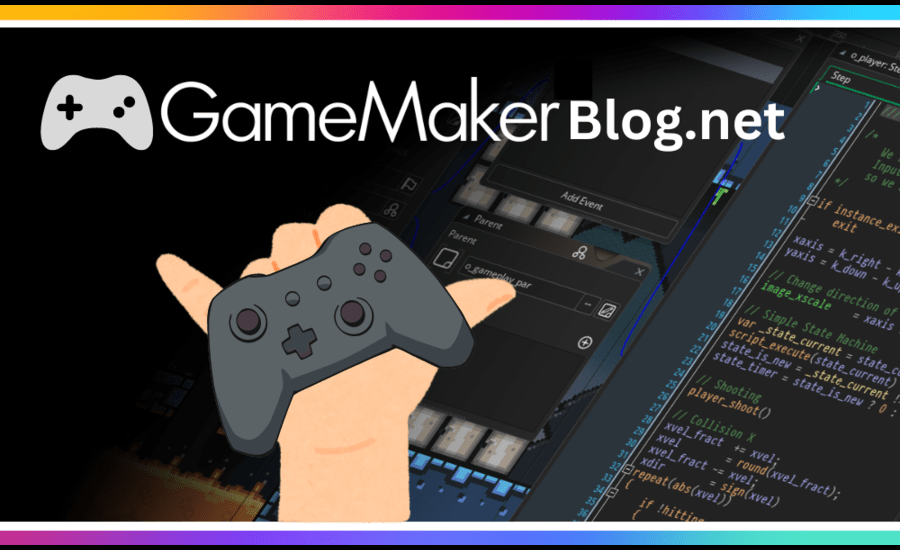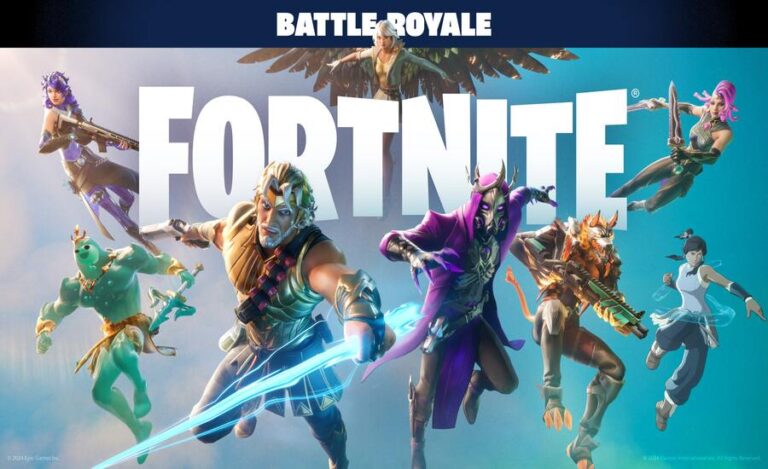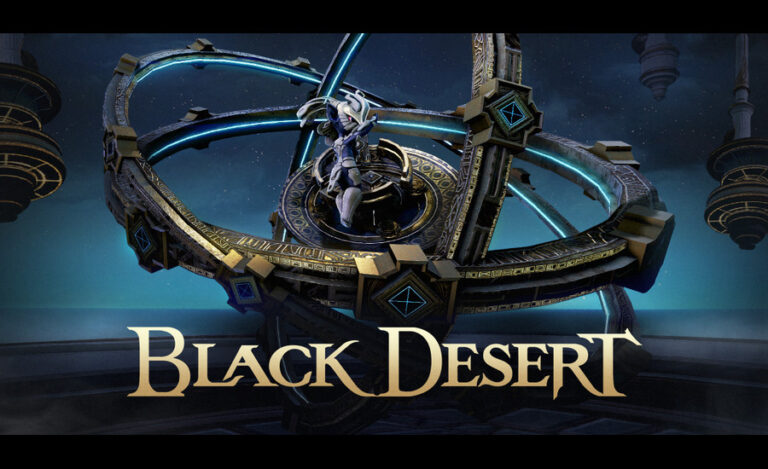Discover the World of Game Development with https// gamemakerblog.net
Introduction to Game Development
The world of game development is an exhilarating journey filled with creativity, innovation, and a deep understanding of both technology and storytelling. It’s a field that allows developers to craft entire universes, characters, and experiences that captivate millions around the globe. From simple mobile games to complex, multi-layered console titles, game development spans a wide spectrum of genres, platforms, and styles.
Game development is no longer a domain restricted to major studios with large teams and budgets. Independent developers, hobbyists, and small teams are making waves in the industry thanks to accessible tools, engines, and platforms that empower creativity. This democratization of game development has been accelerated by websites like https// gamemakerblog.net, which provide resources, tutorials, and insights for aspiring and seasoned developers alike.
In this article, we will dive deep into the intricacies of game development, explore the resources available at GameMakerBlog, and understand how this platform can guide you through your journey in game creation.
The Evolution of Game Development
The Early Days
The history of game development is a fascinating one. In the early days of the video game industry, development teams were small, often consisting of just one or two people. The focus was primarily on simple, pixel-based games that were easy to program but still provided entertainment value. Titles like Pong, Tetris, and Pac-Man are prime examples of early game development that laid the foundation for today’s massive gaming industry.
These early developers worked with very limited resources, often coding games from scratch in assembly language. They were constrained by the hardware of the time—primitive compared to today’s standards—but managed to create engaging experiences that continue to influence modern game design.
The Rise of Modern Game Engines
As technology advanced, so did the tools available for game development. The introduction of game engines revolutionized the industry by providing developers with ready-made code libraries, physics engines, rendering tools, and more. Game engines like Unity, Unreal Engine, and GameMaker Studio made it possible for developers to focus on the creative aspects of game design rather than getting bogged down in technical details.
GameMaker Studio, in particular, has been a favorite among indie developers. It allows creators to build games without needing extensive programming knowledge, thanks to its intuitive drag-and-drop interface. GameMakerBlog has become a hub for GameMaker Studio users, offering guides, tutorials, and community discussions that help developers get the most out of the platform.
The Indie Revolution
One of the most exciting developments in the gaming industry over the past two decades has been the rise of indie games. Independent developers, often working on small budgets and with small teams, have produced some of the most innovative and beloved titles in gaming history. Games like Undertale, Hollow Knight, and Stardew Valley are prime examples of indie success stories.
These indie developers rely on accessible tools like GameMaker Studio to bring their visions to life. https// gamemakerblog.net has played a significant role in this movement by providing indie developers with the knowledge and resources they need to succeed. Whether it’s a tutorial on coding mechanics or an article on the latest trends in game design, the site has become an invaluable resource for aspiring developers.

What is GameMakerBlog?
A Comprehensive Resource Hub
At the heart of the indie game development community lies GameMakerBlog, a website dedicated to helping developers of all skill levels learn, grow, and succeed in their game development endeavors. The site covers a wide range of topics, from coding tutorials to industry news, and has become a go-to resource for GameMaker Studio users and beyond.
GameMakerBlog provides a wealth of information on various aspects of game development, including:
- Game Design: From conceptualizing game mechanics to creating engaging narratives, GameMakerBlog offers articles and tutorials that help developers design their games from the ground up.
- Programming: Whether you’re new to coding or an experienced developer, the site provides tutorials on GML (GameMaker Language), as well as tips and tricks for optimizing code and improving performance.
- Graphics and Animation: Game development isn’t just about code; it’s also about creating visually appealing games. GameMakerBlog features articles on sprite creation, animation techniques, and tips for working with pixel art and other graphic styles.
- Marketing and Monetization: Creating a game is only half the battle; getting people to play it is the other half. GameMakerBlog offers insights into game marketing, distribution platforms, and monetization strategies.
A Community-Driven Platform
One of the key strengths of GameMakerBlog is its strong sense of community. The site encourages developers to share their knowledge, experiences, and feedback with one another. Through forums, comment sections, and guest posts, developers can connect with like-minded individuals who share a passion for game creation.
This collaborative environment is particularly valuable for indie developers, who often work in isolation. By engaging with the GameMakerBlog community, developers can find support, inspiration, and constructive criticism that helps them improve their projects.
Getting Started with Game Development
Choosing Your Game Engine
Before diving into game development, one of the first decisions you’ll need to make is which game engine to use. There are several popular game engines available, each with its own strengths and weaknesses. Here are some of the top choices:
- GameMaker Studio: Known for its user-friendly interface and robust features, GameMaker Studio is ideal for 2D game development. It’s particularly popular among indie developers and hobbyists due to its simplicity and flexibility.
- Unity: One of the most widely-used game engines, Unity is known for its versatility. It supports both 2D and 3D game development and offers extensive tools for coding, rendering, physics, and more.
- Unreal Engine: A favorite among AAA studios, Unreal Engine is known for its stunning visuals and powerful performance. It’s more complex than GameMaker Studio or Unity, but it’s the go-to choice for developers looking to create high-fidelity 3D games.
Each engine has its own learning curve, so it’s important to choose one that aligns with your goals and skill level. GameMakerBlog is an excellent resource for GameMaker Studio users, but it also offers valuable insights for developers using other engines.

Learning the Basics of Game Design
Once you’ve chosen your game engine, it’s time to start learning the basics of game design. This includes understanding key concepts like game mechanics, level design, user interfaces, and narrative structure. https// gamemakerblog.net offers a wealth of tutorials and articles on these topics, helping you build a strong foundation for your game.
Here are some key elements of game design to consider:
- Game Mechanics: These are the rules and systems that define how your game works. Game mechanics can include movement controls, combat systems, puzzles, and more.
- Level Design: This involves creating the environments and challenges that players will encounter as they progress through your game. Good level design is crucial for keeping players engaged and providing a satisfying experience.
- User Interface (UI): The UI is how players interact with your game. This includes menus, HUDs (heads-up displays), and other on-screen elements that convey important information to the player.
- Narrative Design: If your game includes a story, narrative design involves crafting the plot, characters, and dialogue that will immerse players in your world.
Developing Your First Game
Creating your first game can be a daunting task, but with the right resources and guidance, it’s entirely achievable. GameMakerBlog is an invaluable resource for beginners, providing step-by-step tutorials on game creation, coding, and asset development.
Here are some tips for getting started with your first game:
- Start Small: Don’t try to create an ambitious, sprawling game right out of the gate. Begin with a small project that allows you to learn the basics of game development without overwhelming yourself.
- Focus on Core Mechanics: Identify the core mechanics of your game and build around them. For example, if you’re creating a platformer, focus on perfecting the jumping and movement mechanics before adding additional features.
- Use Placeholder Assets: Don’t worry about creating perfect graphics or sound effects in the early stages of development. Use placeholder assets while you focus on building the core gameplay. You can always replace them later with polished assets.
- Iterate and Test: Game development is an iterative process. Continuously test your game as you develop it, and make adjustments based on player feedback and your own observations.
GameMakerBlog’s tutorials and community support can be incredibly helpful as you work through these early stages of game development.
The Art of Game Design
Crafting Engaging Gameplay
At the heart of any successful game is engaging gameplay. This is what keeps players coming back, whether they’re battling enemies, solving puzzles, or exploring vast open worlds. Crafting engaging gameplay requires a deep understanding of player psychology, mechanics, and flow.
One of the most important aspects of game design is creating a balance between challenge and reward. Players should feel a sense of accomplishment when they overcome obstacles, but the game should never feel so difficult that it becomes frustrating. https// gamemakerblog.net offers articles on designing balanced gameplay, including tips on difficulty scaling, player feedback, and pacing.
Designing for Different Platforms
One of the challenges of game development is designing for different platforms. Whether you’re creating a game for PC, consoles, or mobile devices, each platform has its own unique considerations.
- PC Games: PC games often have more complex controls and require higher levels of performance. Developers need to consider things like keyboard and mouse controls, as well as optimizing the game for different hardware configurations.
- Console Games: Consoles like the PlayStation and Xbox offer more standardized hardware, but developers need to ensure their games are compatible with each console’s controller and interface.
- Mobile Games: Mobile games require a different approach to design, with a focus on touch controls, shorter play sessions, and optimizing for a wide range of devices. Mobile game developers also need to consider factors like battery usage and screen size.
Visual and Audio Design
While gameplay is the foundation of any game, the visual and audio design play a critical role in creating an immersive experience. Game visuals range from simple pixel art to highly-detailed 3D models, while audio design includes everything from background music to sound effects.
GameMakerBlog offers tutorials on a wide range of visual and audio design topics, including:
- Sprite Creation: For 2D games, sprites are the individual images that represent characters, objects, and environments. Creating high-quality sprites is an essential skill for indie developers.
- Animation: Animating sprites and 3D models is crucial for making your game feel alive. https// gamemakerblog.net offers tips on creating fluid and realistic animations that enhance gameplay.
- Sound Design: Sound effects and music are often overlooked in game development, but they play a crucial role in setting the tone and mood of a game. GameMakerBlog provides guides on creating and implementing sound effects, as well as selecting or composing the right music for your game.

The Business of Game Development
Monetizing Your Game
Once you’ve completed your game, the next step is to monetize it. There are several ways to make money from your game, and GameMakerBlog provides in-depth articles on different monetization strategies.
- Premium Games: This is the traditional model where players pay upfront for the game. It’s commonly used for console and PC games, as well as some mobile games.
- Free-to-Play (F2P): The F2P model allows players to download and play your game for free, but you can offer in-app purchases or microtransactions for cosmetic items, power-ups, or additional content.
- Subscription Services: Some developers choose to offer their games as part of a subscription service, such as Apple Arcade or Xbox Game Pass. This can provide a steady revenue stream, especially for indie developers.
GameMakerBlog’s articles on game monetization explore the pros and cons of each model, helping you decide which approach is best for your game.
Marketing and Promotion
In a crowded marketplace, marketing your game effectively is crucial for success. https// gamemakerblog.net offers a wealth of information on game marketing, including tips on building a social media presence, creating trailers, and reaching out to influencers and reviewers.
Some key marketing strategies include:
- Social Media Campaigns: Building a following on platforms like Twitter, Instagram, and Reddit can help generate buzz for your game.
- Press Outreach: Reaching out to gaming websites, blogs, and YouTubers for reviews and coverage can help get your game in front of a larger audience.
- Community Engagement: Building a community around your game through forums, Discord servers, or early access programs can help you gain valuable feedback and foster a loyal fan base.
GameMakerBlog’s marketing guides are tailored to indie developers, offering practical advice that can help you promote your game on a limited budget.
Conclusion: The Future of Game Development with GameMakerBlog
The world of game development is ever-evolving, and platforms like https// gamemakerblog.net are at the forefront of this exciting industry. Whether you’re just starting out or are an experienced developer looking to refine your skills, GameMakerBlog provides the resources, support, and inspiration you need to succeed.
By offering comprehensive tutorials, insightful articles, and a vibrant community, GameMakerBlog has established itself as an invaluable resource for game developers of all levels. As the gaming industry continues to grow, so too will the opportunities for creative individuals to make their mark.
In a world where anyone can become a game developer, the tools and knowledge provided by https// gamemakerblog.net are essential for turning your ideas into reality. Whether you dream of creating the next indie hit or simply want to explore game development as a hobby, GameMakerBlog is your gateway to a world of endless possibilities.






